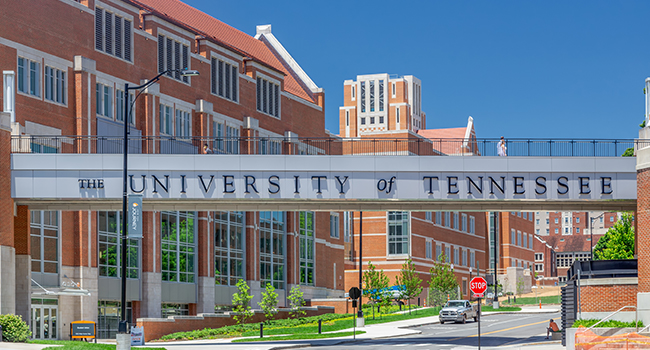
University of Tennessee to Increase Security Following Graffiti Incidents
The university released a statement Sunday saying that the Rock was painted "to communicate hate," and that the messages, "which are hurtful and threatening to many members of our community, do not represent our Volunteer values."
- By Jessica Davis
- November 16, 2018
University of Tennessee Police Chief Troy Lane announced Tuesday that UTPD would be increasing its presence around the Rock after it was painted with hateful graffiti for the second time in two weeks. The Rock, a 97.5-ton slab of dolomite stone, has been a fixture at the campus since the 1960s and is often painted with fun, colorful messages of school spirit.
The university released a statement Sunday saying that the Rock was painted "to communicate hate," and that the messages, "which are hurtful and threatening to many members of our community, do not represent our Volunteer values."
The school did not elaborate on the messages painted on the Rock, but photos showed that the most recent school-spirit painting had been defaced with swastikas and other hateful and antisemitic messages.
"I am concerned about any hateful speech directed toward individuals or particular groups," Lane said. "Many of you have reached out to us about our response over the weekend. We are committed to being more thoughtful in addressing these incidents moving forward."
Lane said there will be more security in front of the Rock to prevent further vandalism. UTPD has received security footage from the latest hateful painting, which was done Saturday night, and is working with local, state and federal law enforcement to follow up on the incident.
"The safety and security of our students, faculty, and staff is my top priority," he said. "We encourage the campus community to continue to report these incidents."
This is the second time in less than two weeks that The Rock has been defaced with antisemitic messages. Previously, a painting done during a candlelight vigil honoring the victims of the Pittsburgh synagogue shooting had been vandalized.
About the Author
Jessica Davis is the Associate Content Editor for 1105 Media.